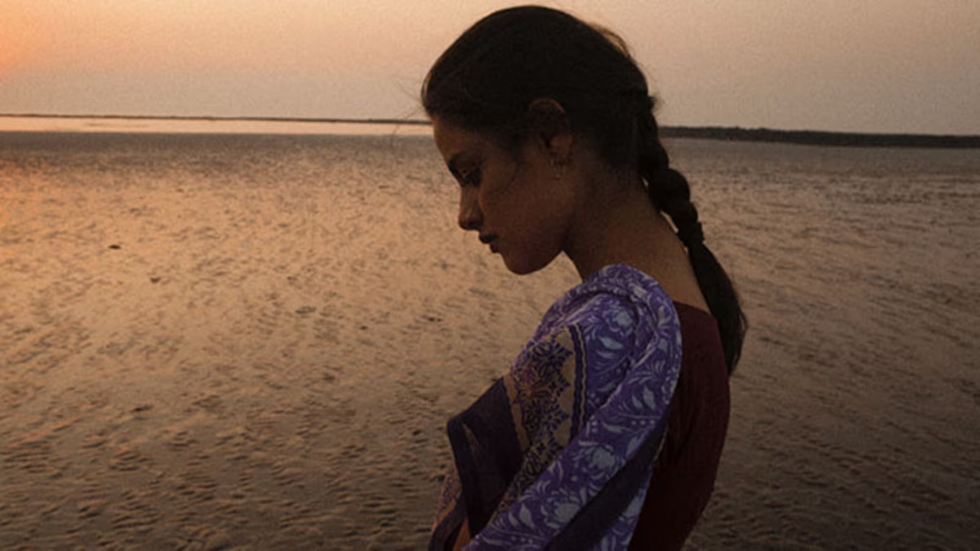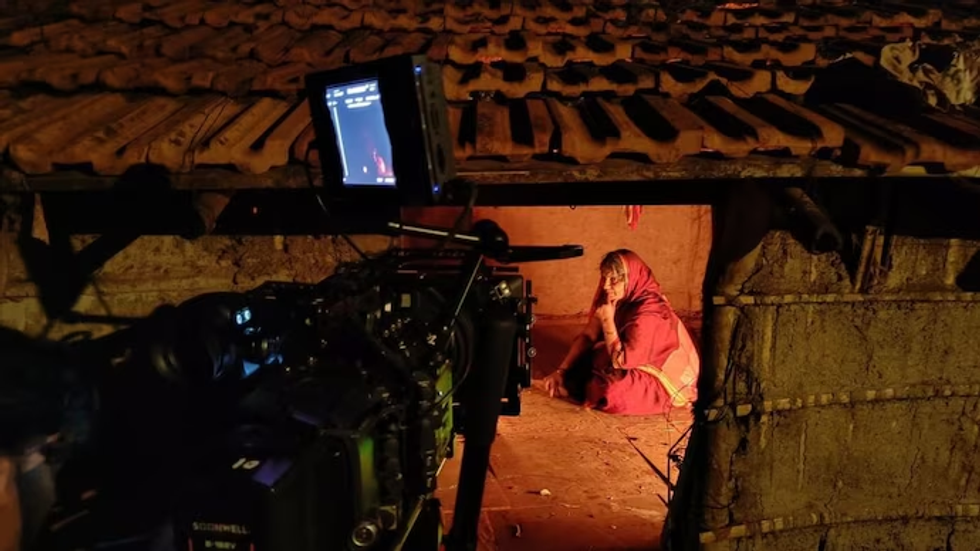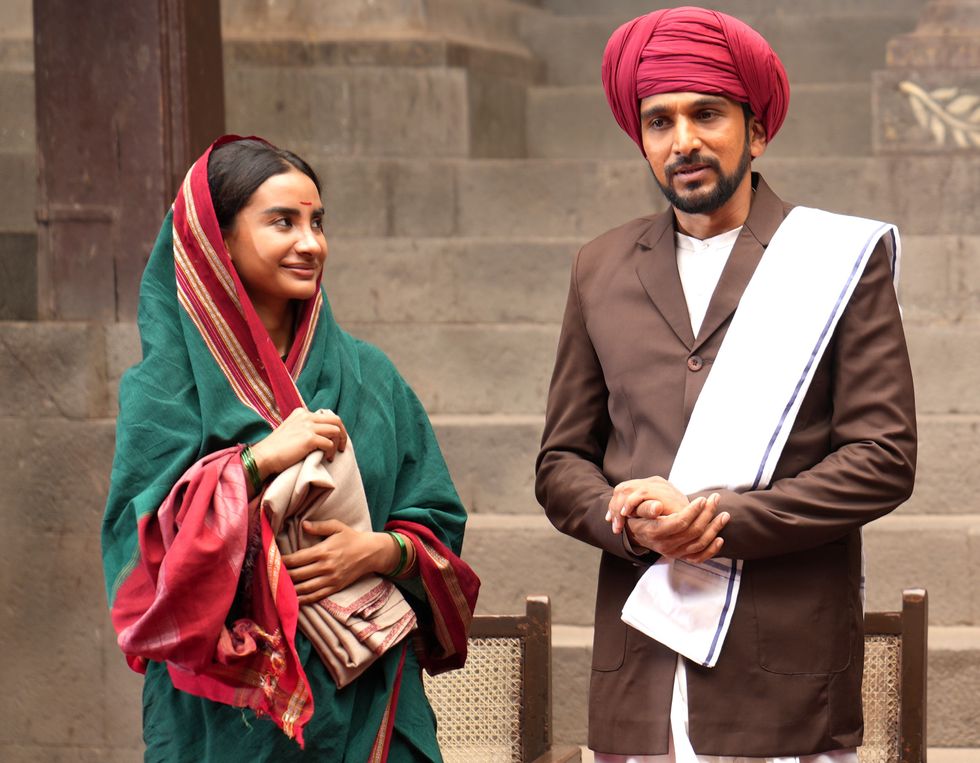With an entry in almost every major section of the 77th Cannes Film Festival, which kicks off on Tuesday evening with French musician-filmmaker Quentin Dupieux's Le Deuxieme Acte (The Second Act), India will have no dearth of action during the 12-day event.
Never before in history have Cannes and its sidebars found space for eight Indian, or India-themed, films. As many as six of these will be in contention for awards.
So, when the festival winds down on May 24 and 25, the media contingent from the world's largest film-producing nation might, fingers crossed, have plenty to write home about.
Indian cinema's previous best at Cannes was in 2013, when it sent five films to various sections: Monsoon Shootout (Midnight Screening), Bombay Talkies (a special screening to mark 100 years since Dada Saheb Phalke's Raja Harishchandra), Ugly (Directors' Fortnight), The Lunchbox (Critics' Week) and Charulata (Cannes Classics).
In 2012, too, India had a substantial presence in Cannes with Miss Lovely (Un Certain Regard), Gangs of Wasseypur (Parts 1 & 2), Peddlers (Critics' Week), and Kalpana (Cannes Classics). But for many years before and since, the pickings have been dishearteningly slender.
One notable aspect of the Indian films at Cannes this year is that they are all either helmed by female directors or are women-centric, with the exception of one. In what could herald a new era, these films, made by directors endowed with sensibilities and approaches entirely their own, have shaken off the shadow of the gangster genre.
Leading the Indian charge at Cannes 2024 is Payal Kapadia's India-French-Dutch co-production All We Imagine as Light, a film in Malayalam and Hindi. It competes for the Palme d'Or, the festival's top prize, and is the first Indian film to do so in three decades.

Kapadia will have to beat off, among others, Paolo Sorrentino, David Cronenberg, Andrea Arnold, Kirill Serebrennikov, Paul Schrader, and Yorgos Lanthimos. Jia Zhangke and two previous Palme d'Or winners, Francis Ford Coppola (who won for The Conversation and Apocalypse Now, both in the 1970s) and Jacques Audiard (for Dheepan, 2015).
Indian-British filmmaker Sandhya Suri's Santosh and Bulgarian director Konstantin Bojanov's The Shameless, in which Nepal stands in for India, are in the running for awards in the Un Certain Regard section.
FTII alumnus Chidananda S Naik's Sunflowers Were the First Ones to Know… is in the La Cinef competition for film school entries. Mysore-based Naik is a qualified doctor.

After graduating from medical college, he practised for some time before enrolling in a one-year course in the television wing of the Film and Television Institute of India (FTII). Sunflowers… was Naik's final television film at the institute.
La Cinef has Indian filmmaker Mansi Maheshwari representing the UK. The Meerut-born animation director is in the line-up with Bunnyhood, a self-reflexive graduation film made at the National Film and Television School (NFTS), London.
Maheshwari studied knitwear design at the National Institute of Fashion Technology (NIFT), Delhi, and developed an interest in stop-motion animation. During the Covid lockdown, she made a bunch of animated shorts of varying lengths. She is a 2024 NFTS graduate.
Karan Kandhari's Sister Midnight, an India-British noir drama starring Radhika Apte, is in the Directors' Fortnight selection. The film will vie for the newly introduced Quinzaine des Cineastes People's Choice Award.
Kapadia's FTII batchmate, Maisam Ali, a Ladakh native born in Iran, is the first-ever Indian filmmaker to break into ACID Cannes. His debut feature, In Retreat, has been picked for the parallel section devoted to independent cinema.
In Retreat is an austere meditation on the notion of home conducted through the minimalistic story of a man who, in his 50s, returns to Leh after a long absence and baulks at the idea of reconnecting with the place he drifted away from many years ago.
In the Cannes Film Festival's inaugural edition of the Immersive Competition, a title with an India connection is one of eight selected VR (virtual reality) projects: Maya: The Birth of a Superhero, a British work crafted by multidisciplinary artist-activist Paulomi Basu and her longtime collaborator C J Clarke.
Rounding off India's presence in Cannes this year is a 4K restored version of Shyam Benegal's 1976 crowdfunded film Manthan.
Written by the director in collaboration with playwright Vijay Tendulkar and shot by Govind Nihalani, the film is in Cannes Classics. Manthan, which throws light on the pioneering milk cooperative movement spearheaded by Verghese Kurien, has been restored under the aegis of the Gujarat Cooperative Milk Marketing Federation (GCMMF) by Shivendra Singh Dungarpur's Film Heritage Foundation (FHF), Prasad Corporation, Chennai, and L'Immagine Ritrovata Bologna.
The Cannes Film Festival will conclude on May 25.

















 A still from Phule
A still from Phule
 Miranda Priestly’s icy elegance and Andy Sachs' transformation set the standard for modern power dressingJio Hotstar Screengrab
Miranda Priestly’s icy elegance and Andy Sachs' transformation set the standard for modern power dressingJio Hotstar Screengrab Audrey Hepburn’s timeless little black dress remains a symbol of sophistication and styleYoutube Screengrab
Audrey Hepburn’s timeless little black dress remains a symbol of sophistication and styleYoutube Screengrab Cher Horowitz’s yellow plaid suit redefined 90s teen fashion with its bold preppy charmYoutube Screengrab
Cher Horowitz’s yellow plaid suit redefined 90s teen fashion with its bold preppy charmYoutube Screengrab Lady Gaga’s extravagant Gucci ensembles brought vintage luxury and dramatic glamour back to the forefrontPrime Video
Lady Gaga’s extravagant Gucci ensembles brought vintage luxury and dramatic glamour back to the forefrontPrime Video
 Rihanna strikes a bold bridal pose in Savage X Fenty’s new collectionInstagram/
Rihanna strikes a bold bridal pose in Savage X Fenty’s new collectionInstagram/ Rihanna’s playful cake-smash in bridal lingerie fuels fan theories about a secret ceremony with A$AP RockyInstagram/
Rihanna’s playful cake-smash in bridal lingerie fuels fan theories about a secret ceremony with A$AP RockyInstagram/ From Harriet the Spy to Gossip Girl, Michelle Trachtenberg’s acting career captivated generations of viewersGetty Images
From Harriet the Spy to Gossip Girl, Michelle Trachtenberg’s acting career captivated generations of viewersGetty Images